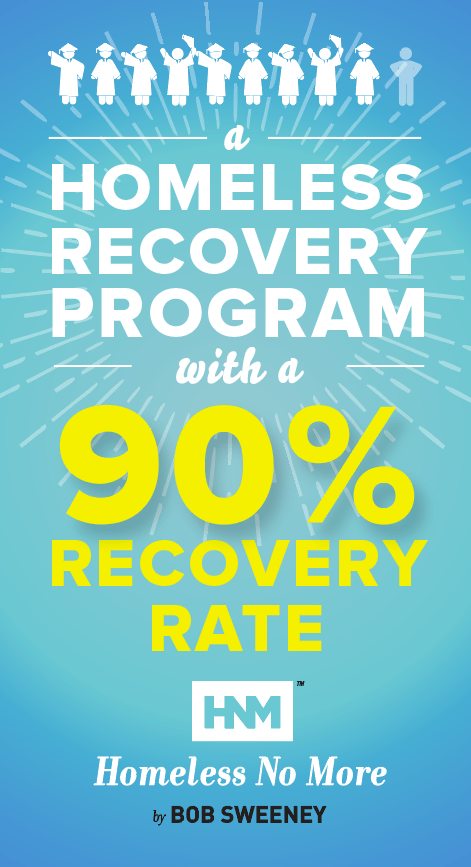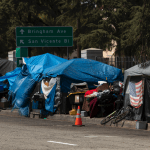As I walk through the vibrant streets of Dallas, the city I call home, it’s impossible not to notice a contrasting narrative unfolding on the corners of our bustling urban landscape. Amidst the gleaming skyscrapers and the constant hum of city life, there exists a silent testament to a persistent challenge – homelessness. This isn’t a new story; cities across the nation grapple with it daily. Yet, in Dallas, the narrative takes on unique contours, shaped by the city’s history, its people, and the collective resolve to find solutions.
In recent years, Dallas has seen fluctuations in its homeless population, a reflection of broader social and economic undercurrents. The city’s response? A blend of compassion, innovation, and strategic action, aiming not just to manage but to solve homelessness at its roots. Dallas’s approach is varied, recognizing that homelessness isn’t unsurmountable but a complex issue that requires equally complex solutions.
From rapid rehousing initiatives to comprehensive support systems that address mental health, employment, and beyond, Dallas is crafting a blueprint for change. And change is palpable. Programs across the city are making strides, helping individuals and families transition from the uncertainty of the streets to the stability of a home. Yet, as with any endeavor of this magnitude, progress is incremental and challenges are ever-present.
In this blog post, we’ll delve into the heart of Dallas’s homeless solutions – the strategies, the successes, and the road ahead. We stand at a crossroads, between the Dallas we see today and the Dallas we hope to become. A city where homelessness is not an inevitable urban reality, but a challenge met with unwavering resolve and innovative solutions.
Help Put Someone On The Road To A Better Life
At Homeless No More, we’ve witnessed firsthand the transformative power of intervention and support. With a 90% success rate in guiding individuals off the streets, we know what’s possible when we come together as a community. Your support can extend the reach of programs making a tangible difference across Dallas and beyond. Join us in this mission. See how you can help.
In the sections that follow, we’ll explore the specific strategies that underpin Dallas’s homeless solutions, the stories of those affected, and how every Dallas resident can play a role in this important work. It’s a journey towards a better future, one step at a time

Get Free Our Report: “7 Steps That Get 90% Off The Street”
Dallas Homeless Solutions: Volunteer
In the heart of Dallas, amidst the sprawling urban challenges, there lies a powerful force for change – the volunteers. These individuals, from diverse backgrounds and walks of life, converge with a common purpose: to combat homelessness with compassion and action. Their contributions are the unsung melodies in the symphony of solutions Dallas orchestrates daily.
Volunteering in the realm of homeless solutions isn’t just about offering time; it’s about bridging gaps, building relationships, and fostering hope. Whether it’s serving meals, tutoring children in shelters, or providing job training, every act of volunteerism is a step toward stability for someone in need. The impact of these volunteers is profound, transforming not just the lives of the recipients but the fabric of our community as a whole.
One might wonder, how significant is a single volunteer’s impact? Immensely. Each volunteer brings unique skills, perspectives, and energy that enrich the support systems for the homeless. From legal professionals offering pro bono services to students organizing donation drives to barbers offering haircuts, the collective effort is monumental. It’s a testament to the power of community and the indomitable spirit of those determined to make a difference.
What Dallas is Doing for the Homeless
In the vibrant heart of Dallas, where the community’s spirit shines bright, the city has embarked on a courageous journey to tackle the daunting challenge of homelessness. Through comprehensive strategies and the collective efforts of dedicated individuals and organizations, Dallas is forging a path to a brighter, more hopeful future for its most vulnerable residents.
City-Wide Initiatives and Programs
Dallas’s approach to homelessness is both compassionate and strategic, aiming not only to provide immediate shelter but also to pave the way for sustainable independence. Central to these efforts is the R.E.A.L. Time Rehousing Initiative, a transformative program designed to significantly reduce the number of homeless individuals and families within the city’s borders.
This ambitious initiative, initially aiming to rehouse over 2,700 individuals by the end of 2023, has now set its sights even higher, with a goal to assist 6,000 unique individuals by 2025. It stands as a testament to what can be achieved when a community comes together to support its most vulnerable members. The initiative is making tangible progress, actively changing lives and working towards creating a safer, healthier, and more inclusive city 1.
The Rapid Rehousing Program in Dallas
At the core of Dallas homeless solutions strategy is the Rapid Rehousing Program, which embodies the city’s commitment to not just managing but solving homelessness. This program is an integral part of the R.E.A.L. Time Rehousing Initiative, offering a lifeline to those in need through a combination of housing assistance, supportive services, and a dedication to long-term stability.
Participants are carefully assessed and, if deemed likely to maintain stable housing, are provided with a rental subsidy covering their rent for twelve months. Additionally, they receive move-in kits to help them start anew, including essential household items from pots and pans to furniture. Beyond the physical necessities, the program offers invaluable supportive services such as mental healthcare, food assistance, and job training, ensuring individuals have the resources they need to succeed 2.
The Impact of Collective Effort
The success of Dallas’s initiatives is a shining example of what is possible when compassion and action go hand in hand. The R.E.A.L. Time Rehousing Initiative’s approach, leveraging both public and private resources, highlights the power of collaboration in addressing complex societal challenges. As of 2023, the program has housed 3,023 individuals, administered $2,440,452 in Flex Funds, and is on track to expand its reach even further 3.
Get Homeless No More for Your Shelter, Non-Profit or Business.
The Rapid Rehousing Program in Dallas: A Beacon of Progress Amidst Challenges
Dallas, a city known for its dynamic spirit and resilience, has undertaken a formidable challenge — transforming the lives of its homeless population through the Rapid Rehousing Program. This initiative represents a cornerstone of the city’s broader efforts to combat homelessness, reflecting a commitment to both immediate action and long-term solutions.
A Detailed Look at the Program
The Rapid Rehousing Program in Dallas is more than just a temporary fix; it’s a bridge to a new beginning for many. With the ambitious goal set by the City of Dallas’s Office of Homeless Solutions to house over 2,700 individuals by 2023 and extending the target to 6,000 by 2025, the program is a testament to what’s possible when compassion meets action 4.
Participants in this program receive not just housing, but a comprehensive support system designed to ensure their transition is both smooth and sustainable. From rental subsidies to move-in kits and personalized supportive services, the program addresses the multifaceted nature of homelessness.
Successes to Celebrate
The program’s impact is evident in its numbers. Over 2,000 individuals and families have found homes through this initiative in just two years, with many more on the path to stability and self-sufficiency. These successes underscore the potential of targeted interventions to make a real difference in the lives of those facing homelessness 5.
Challenges to Overcome
However, the journey is not without its obstacles. Affordable housing shortages, the complexities of individual needs, and the ongoing need for supportive services present significant challenges. The program’s reliance on public and private partnerships highlights the importance of collaboration in overcoming these hurdles and ensuring its continued success.
Forward Together
The Dallas Rapid Rehousing Program demonstrates the profound impact of concerted efforts to address homelessness. As the city continues to advance its initiatives, the lessons learned and the lives transformed offer valuable insights into the power of community, compassion, and commitment to change. What must be addressed to move forward is those who become homeless again once the 12-month housing voucher expires. To solve homelessness permanently, wraparound services cannot just be provided, they must be utilized.
Dallas Homeless Solutions: Donations
The Impact of Donations
Donations play a pivotal role in the Homeless No More program, fueling a recovery process that boasts a remarkable 90% success rate. Through generous support, the program is able to provide comprehensive care that includes meals, safe lodging, medical services, counseling, and job training. Businesses and individuals can partner with the program to provide life skills that can transform mindsets and lead to permanent recovery from homelessness. These contributions are critical, empowering the program to lift individuals and families from the depths of homelessness to the promise of a brighter, stable future.
Success Stories That Inspire
The stories of transformation are both powerful and plentiful. Anna, once a college graduate turned homeless due to life’s unforeseen challenges, found a new beginning through the program. Today, she serves as a receptionist, her voice a symbol of hope to those she speaks with. Then there’s Robert, who after spending over a year in the program, now enjoys a rebuilt life, working and living with gratitude. The Gooden family, a year post-graduation, proudly shares their journey to housing, employment, and community integration. Greta, another testament to the program’s success, not only works at Dallas LIFE but is also spearheading her own ministry. Their lives have been transformed – not just by a curriculum – but by mentors and self-responsibility combined with guidance and expertise of those surrounding them.
Hotel Vouchers for Homeless in Dallas
In Dallas, addressing homeless solutions through innovative solutions includes the provision of hotel vouchers for temporary shelter, a crucial initiative for those without a home. This approach is exemplified by programs such as Elevate North Texas’s Emergency Shelter – Hotel Program, which collaborates with hotels across North Texas to meet the immediate needs of young individuals aged 18 to 24 experiencing homelessness. This initiative is particularly noteworthy as it serves a demographic that often lacks access to traditional shelters and may face unique challenges, including aging out of foster care or discrimination 6.
The City of Dallas, through its Office of Homeless Solutions, also demonstrates a commitment to reducing homelessness with various programs, including the R.E.A.L. Time Rehousing Initiative. This initiative, while focusing on rapid rehousing, includes the use of emergency shelter vouchers as part of its comprehensive approach to assist those in immediate need. By providing a temporary safe haven, these programs not only address the critical need for shelter but also connect individuals with supportive services to aid in their transition to stable housing 7, 8.
The benefits of such hotel voucher programs extend beyond just offering a temporary place to stay. They provide a moment of respite for individuals and families in distress, offering safety, stability, and the dignity of a private space. Furthermore, these programs are a gateway to additional resources and services, such as case management, counseling, and life skills training, which are essential for long-term success and independence. The collaborative efforts of community organizations, along with the support of the city’s initiatives, underscore the holistic approach needed to tackle the complexities of homelessness.
For those interested in supporting or learning more about these life-affirming programs, Elevate North Texas provides avenues for volunteering and donation, emphasizing the community’s role in elevating youth out of homelessness. Similarly, the City of Dallas encourages community involvement and support for its wide range of initiatives aimed at overcoming homelessness, highlighting the importance of collective action in making a tangible difference 9.
Moving from emergency housing and hotel vouchers to a safe and stable recovery center is the heartbeat of Dallas LIFE, Bob Sweeney and the Homeless No More program. Once the emergency voucher ends, transitioning the homeless to Dallas LIFE and demonstrating to them the importance of entering a holistic recovery program is paramount. When they don’t know what they don’t know they cannot recover. They are alone and need a community to surround them and teach them how to not be homeless – what it takes to recover completely and permanently from where and how they find themselves.
Where are the Most Homeless in Dallas
The most affected areas of homelessness in Dallas and Collin counties are highlighted by the 2022 Point-in-Time Homeless Count, revealing a total of 4,410 individuals experiencing homelessness, with the majority in Dallas County. This count marks the lowest since 2019, indicating progress in combating homelessness through community programs and eviction prevention initiatives. Rapid rehousing efforts have significantly contributed to this progress, with an all-time high rate of individuals exiting to permanent housing 10.
Dallas Homeless Shelters
The largest and most notable shelter in North Texas is Dallas LIFE, which offers a distinctive recovery program alongside providing meals, shelter, and clothing. I’ve had the privilege of being the director of Dallas LIFE for two decades and developed the Homeless No More program in response to a lifelong, boots-on-the-ground observation of homeless recovery failures throughout the nation. Beyond meeting specific tangible needs, Homeless No More addresses the varied issues facing veterans, seniors, the disabled, families and single parents. Our recovery center is not just a shelter – we emphasize the importance of recovery and reintegration into society, offering services such as job training, counseling, and spiritual care to assist residents in regrouping, refocusing, and re-establishing their lives (Dallas Life).
In Dallas, there are other shelters playing a crucial role in providing refuge and support services to individuals facing homelessness. Among these, The Bridge operates 24/7, offering a wide range of services from basic needs like hot showers, nutritious meals, and haircuts to more intensive supports such as physical and mental health evaluations, case management services, and emergency night shelter for approximately 300 guests each night. (The Bridge).
Austin Street Center, one of Dallas’ largest homeless shelters for over three decades, not only provides emergency housing but also guides clients toward permanent housing solutions. Austin Street Center is expanding its operations to meet the growing need for services with a new 60,000-square-foot facility focused on client-centered homeless shelter and day service (Austin Street Center).
These shelters, among others in the Dallas area, demonstrate a collaborative and comprehensive approach to tackling homelessness, providing critical services and support for individuals and families in need. Their efforts are a testament to the community’s commitment to making homelessness rare, brief, and nonrecurring.
Dallas Homeless Encampment
Addressing the challenges and solutions for homeless encampments in Dallas requires a multifaceted approach that involves the city, nonprofit organizations, and the community. Dallas has seen a significant increase in homelessness and unsheltered individuals living in encampments over the years, with the number of unsheltered homeless individuals rising sharply between 2014 and 2020. However, recent initiatives have started to show promise in reducing these numbers.
The Mayoral Task Force on Homelessness has been pivotal in recommending changes to the city’s response to homelessness, emphasizing the importance of decommissioning encampments rather than simply closing them down. Decommissioning involves a comprehensive approach where trained professionals engage with encampment residents over weeks to understand their needs and assist them in securing suitable housing. This method aims not just to clear the encampments but to ensure that the individuals are safely rehoused, addressing the root causes of their homelessness 11.
Furthermore, the city has proposed a $4.1 million investment to manage encampments, which is part of a broader strategy to end and prevent homelessness. This includes the ambitious R.E.A.L. Time Rehousing initiative, aiming to house 6,000 individuals and families by 2025. This initiative, alongside the HOPE task force recommendations, highlights the city’s commitment to tackling unsheltered homelessness through both immediate action and long-term prevention strategies 12.
Key challenges identified include the lack of affordable housing, mental health and addiction issues among the homeless population, and legislative hurdles like Texas House Bill 1925, which banned camping in public places. Solutions recommended by the task force and other stakeholders include consistently allocating resources to encampment closures, providing low-barrier shelter options, and creating more affordable housing units to address the city’s housing gap 13, 14. However, the position I have held for years and will continue to speak about is that without addressing the triggers that led to homelessness – which are more often than not drugs, alcohol, relationship issues, mental health struggles and/or poverty – the homeless population will continue to grow.
Dallas’s efforts reflect an understanding that homelessness is a complex issue requiring a thoughtful, coordinated response. By focusing on individual needs, providing support for mental health and substance use disorders, and increasing the availability of affordable housing, the city aims to make homelessness rare, brief, and nonrecurring. Dallas LIFE has partnered with Dallas consistently to aid in the recovery for as many homeless individuals as is possible. The decline in the unsheltered homeless population in recent counts is a positive sign, indicating that these concerted efforts are beginning to yield results.
How Much Does it Cost to Stay at the Dallas Homeless Shelter?
Staying at a homeless shelter in Dallas, such as Dallas LIFE comes with various policies and operational aspects. Dallas LIFE offers first-time residents three free nights of stay. After this period, residents can choose between the Pay-To-Stay Program, which costs $15 per night, or engage in the 10-Month Homeless No More Program, which is free for those without income 15.
Shelters like ours operate with the mission of not only providing immediate refuge but also supporting individuals and families in their journey towards stability and independence. With a variety of services ranging from meals and clothing to counseling and employment assistance, Dallas LIFE aims to address the holistic needs of those experiencing homelessness. The fees and programs are designed to accommodate the residents’ financial situations, ensuring that those in need can access the support services necessary for recovery and reintegration into society.
Does Texas Have a Homeless Program?
Texas has implemented a variety of programs aimed at assisting individuals who are homeless or at risk of becoming homeless. These initiatives are designed to provide not only shelter and basic needs but also to address underlying issues such as mental health, substance use, and the lack of affordable housing.
The Permanent Supportive Housing Program, for example, focuses on helping those 18 and older who are at high risk of becoming homeless find safe, affordable housing. This program emphasizes skill-building for maintaining housing and living independently. Another initiative, the Supported Housing Rental Assistance Program, aids individuals who are homeless or at risk with temporary rent subsidies, utility payments, and move-in costs. Additionally, the Section 811 Project Rental Assistance Program targets very low-income individuals with disabilities, offering them housing options without mandatory participation in services. These efforts are part of a larger strategy to mitigate homelessness within the state 16.
The Texas Department of Housing and Community Affairs (TDHCA) plays a significant role in managing these programs. Among its offerings, the Homeless Housing and Services Program (HHSP) provides funding to Texas’s nine largest cities, supporting services for homeless individuals and families. This initiative encompasses a wide range of activities, including the construction and development of housing for homeless persons, rehabilitation of structures, direct services, and case management for those at risk of homelessness 17, 18.
These programs exemplify Texas’s commitment to addressing homelessness through comprehensive, supportive services that go beyond temporary shelter. They aim to create sustainable paths toward stability and independence for those who are homeless.
Dallas Homeless Solutions Complaints
The City of Dallas’ Office of Homeless Solutions is committed to addressing homelessness with strategic initiatives and street outreach, focusing on providing comprehensive support services to homeless individuals. This commitment is rooted in transparency, consistency, and accountability, aiming to ensure that those experiencing homelessness receive the necessary support for a better life. Feedback and community involvement are crucial to the ongoing improvement and effectiveness of these initiatives 19. To begin filing a complaint or concern, please click here.
References
- https://dallashomelesssolutions.com/our-initiatives/dallas-r-e-a-l-time-rapid-rehousing/
- Ibid.
- https://housingforwardntx.org/drtrr-community-dashboard/
- https://dallashomelesssolutions.com/our-initiatives/dallas-r-e-a-l-time-rapid-rehousing/
- Ibid.
- https://elevatentx.org/programs/hotel-program/?gad_source=1&gclid=Cj0KCQjwlN6wBhCcARIsAKZvD5jPH-DSPkTzLpJMWSu12gtv-rqPfUFrzNhK3CcaEx_tS5JmVDdU_rUaArj8EALw_wcB
- https://dallascityhall.com/departments/homeless-solutions/Pages/default.aspx
- https://dallashomelesssolutions.com/our-initiatives/dallas-r-e-a-l-time-rapid-rehousing/
- https://dallascityhall.com/departments/homeless-solutions/Pages/default.aspx
- https://unitedwaydallas.org/updates/the-state-of-homelessness-in-2022/
- https://www.dallasobserver.com/news/mayoral-task-force-recommends-changes-to-dallas-homeless-response-18414179
- https://www.governing.com/housing/dallas-proposes-4-1m-to-address-homeless-encampments
- https://www.dallasobserver.com/news/mayoral-task-force-recommends-changes-to-dallas-homeless-response-18414179
- https://www.homelessshelterdirectory.org/shelter/tx_salvation-army-dallas-shelter-and-services-carr-p-collins-social-service-center
- https://www.homelessshelterdirectory.org/shelter/tx_salvation-army-dallas-shelter-and-services-carr-p-collins-social-service-center
- https://www.tdhca.texas.gov/programs/section-811-project-rental-assistance-program
- https://www.tdhca.texas.gov/programs/homeless-programs
- https://www.tdhca.texas.gov/homeless-housing-and-services-program-hhsp
0024





